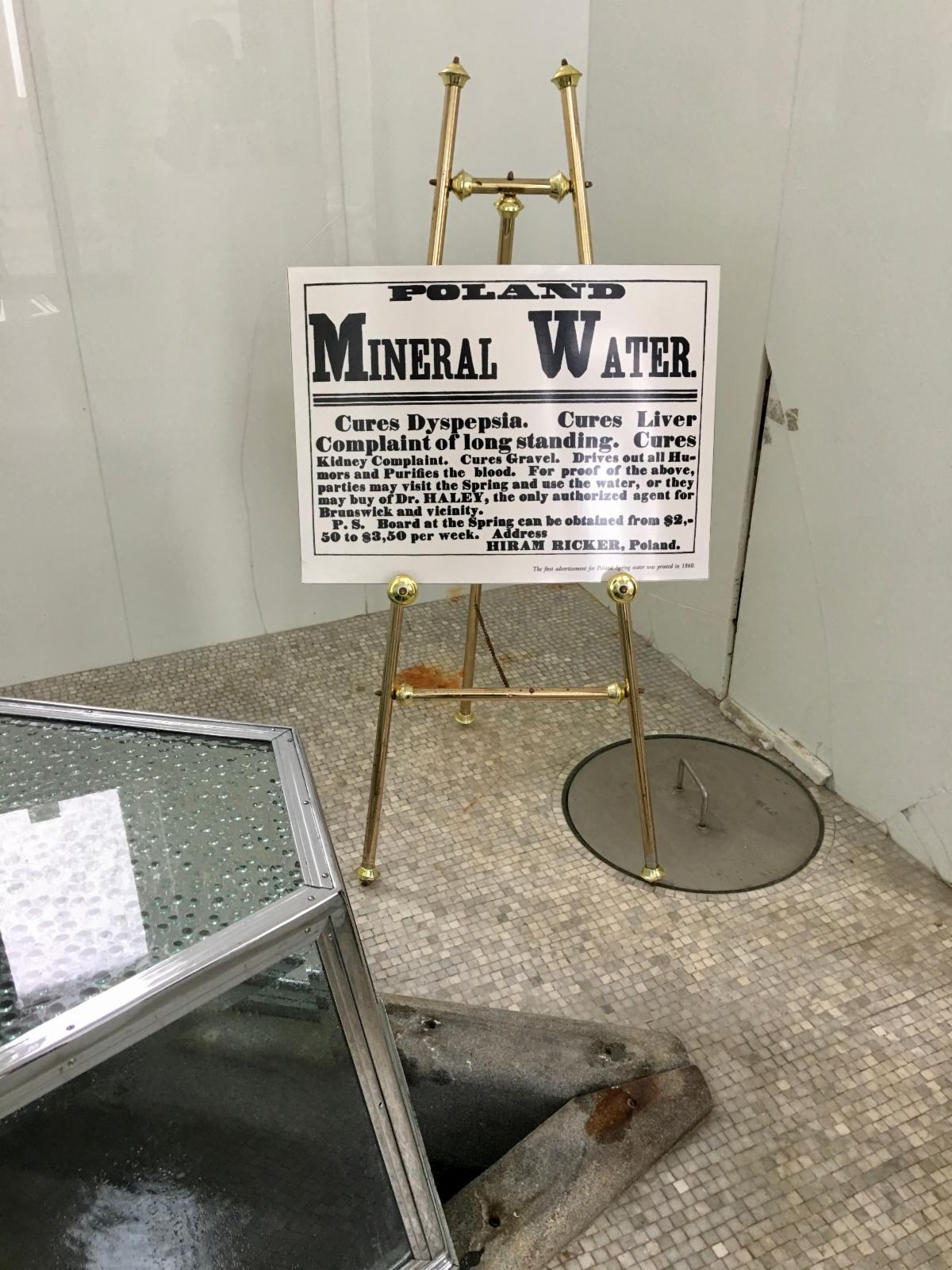Editor’s Note: The following story first appeared in The Maine Monitor’s free environmental newsletter, Climate Monitor, that is delivered to inboxes for every Friday morning. Sign up for the free newsletter to get important environmental news by registering at this link.
A bill that began last year as an attempt to impose a 5¢ per gallon tax on commercial bottlers who extract more than 1.5 million gallons of ground or surface water annually has been, ahem, watered down to a resolve to establish a commission that would study the issue.
The legislation would seem to be aimed at the state’s largest commercial bottler, Poland Spring, now owned by BlueTriton Brands, among others. The initiative forms what will be known as the “Commission To Study the Role of Water as a Resource in the State of Maine.”
The 16-member commission, which will include lawmakers, commercial bottlers, members of the public, tribal governments, municipal utilities, state and environmental representatives and the Maine CDC, is tasked with studying quality and sustainability of Maine’s water resources.

In a report due in early November, the group is expected to develop recommendations “to ensure that there is adequate clean, safe and accessible drinking water for the State’s residents and to meet the needs of commercial and business interests now and in the future.” It will also discuss the positive and negative effects of a tax on water extraction.
There’s a reason some say the next world wars will be fought over water: in many areas of the world, freshwater reserves are disappearing, threatening food supplies, health and the environment. People are increasingly migrating because of water, or lack thereof.
The water crisis, however, is imbalanced: the wet areas of the world are getting wetter and the dry areas are getting drier, resulting in a cascade of divergent problems. In Maine we’ve seen rivers burst their banks and torrential rains destroy bridges, while California and the American West have been plagued by wildfires and drought, prompting some local agencies to pay farmers to leave fields fallow and towns to ban residents from watering their lawns.
Telling people not to water their lawns may not seem like much, but Californians use nearly double (or triple, depending on which estimate you look at) the amount of water that Mainers do — between 85 and 146 gallons per person, per day – in part because keeping plants green in a hot dry place with little rainfall requires a lot of water. (The Public Policy Institute of California estimates that landscape watering makes up half of urban water consumption.)
In Maine we average around 45.5 gallons per person, per day for domestic use. Roughly 24 trillion gallons of precipitation fall on the state each year, 2-5 trillion of which seep into the soil and recharge groundwater supplies.
That’s a lot of water: with a trillion gallons, you could shower nonstop for 300,000 years, or provide three million people with a lifetime of drinking water, or brew 20 billion bottles of beer, according to geologist Carol White.
The thirstiest users in Maine, by a long stretch, are industrial (66 billion gallons per year) followed by domestic (24 billion), aquaculture (20 billion) and irrigation (7 billion), according to the most recent 2015 data from the state’s Water Use Data and Reporting Program.
Bottled water is close to the bottom of that list, around 1 billion gallons per year. (That figure varies widely, however — a poster in the office of Roger Crouse, head of the Maine Drinking Water Program, put bottled water extraction between 2-3 billion gallons, just below snowmaking, at 5 billion gallons per year).
Just because we are a wet state doesn’t mean we shouldn’t pay attention to our water use, Crouse told me when I interviewed him for my master’s project in 2016. Although the state does have abundant freshwater resources, population growth has stressed them, particularly in ever more frequent periods of drought.
We’ll have to wait until November to see what the Commission reports, but state water experts have yet to sound alarm bells. “If we ever get to the point in Maine where we’re rationing water in the way that other states have had to,” said Crouse, “the rest of the country is already on fire.”
Lawmakers approve cash to help industrial businesses become more efficient
Legislators approved a $6.5 million boost over the next three years for a program aimed at getting Maine’s industrial businesses to cut their emissions and energy use as part of “An Act To Provide Climate Change Transition Assistance for Maine’s Energy-intensive Businesses.”
The legislation directs $500,000 in general funds to Efficiency Maine Trust, which will dole out the cash to companies who qualify. An additional $6 million has been appropriated from the state’s share of American Rescue Plan Act monies.
“Maine’s industrial facilities use a lot of energy, and they are very sensitive to rising energy prices,” said the Trust’s Executive Director Michael Stoddard in an interview on Wednesday. “The availability of these funds come at a critical juncture and will enable us to expand the programs we offer to help those consumers reduce their energy use. That can help them to manage their energy costs and stay competitive in a global market.”
The money will get rolled into the Trust’s Commercial and Industrial Custom Program, which helps companies cut their carbon emissions and energy use, often through updating highly specialized equipment.
The program is also funded annually by the Regional Greenhouse Gas Initiative, a cap-and-invest initiative in which a coalition of states sets limits on the amount of carbon pollution power plants can emit then requires certain plants to buy pollution permits.
“They’re not just buying some equipment off the shelf and plugging it in,” said Stoddard, of the upgrades made by companies that qualify. “These are custom-designed and engineered, highly-sophisticated projects. We have to review each one on a case-by-case basis to establish that it meets our cost-effectiveness requirements and complies with our other program guidelines.”
Companies that apply for the funds, which typically cover up to 50% of a project’s costs, tend to be manufacturers, said Stoddard. “The paper mills, lumber mills, hospitals and universities, boat manufacturers and food processors,” such as potato processor McCain Foods USA or blueberry giant Wyman’s. Last year, cannabis cultivation dominated the project funding, accounting for 22 of 40 awards made and 36% of the funds given out, according to the Trust’s annual report.
To read the full edition of this newsletter, see Climate Monitor: a tax on commercial water extraction; cash for energy-intensive businesses.
Kate Cough covers climate change and the environment for The Maine Monitor. Reach her by email with ideas for other stories at gro.r1752535971otino1752535971menia1752535971meht@1752535971etak1752535971.








